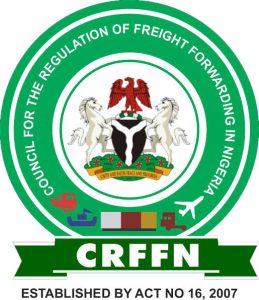Tin Can Island Port: NPA Call-up System for Trucks Dead On Arrival

EDITORIAL
The Nigerian Ports Authority (NPA) on 27th of February launched its Electronic Truck call-up system (e-call up system) designed for the management of truck movement and access to and from the Lagos Ports Complex and the Tin Can Island Ports, Apapa.
The scheme is being operated in conjunction with Lagos State Government and the Nigerian Police.
Prior to the launching, the Lagos State Government had established a “Special Traffic Team” headed by Special Adviser to the Governor on Transportation, Oluwatoyin Fayinka to ensure enforcement of the call-up system.
Other members of the team include; the Senior Special Assistant to the Governor on Central Business Districts, Sola Giwa, Senior Special Assistant to the Governor on Political Security Intelligence, Ayodeji Laurent, Lagos State Commissioner of Police, CP. Hakeem Odumosu and General Manager, Lagos State Traffic Management Authority, LASTMA, Engr. Olajide Oduyoye
When the e-call up system was launched, every port user and even residents of Apapa were overjoyed, especially residents of Apapa Government Reserved Area (AGRA) whose social lifestyle have been negatively affected by constant gridlock and presence of heavy duty trucks on their streets.
However, same could not be said for stakeholders and port users at Tin Can Island Port, including residents of Ajegunle, Mile 2 and Festac axis because the call-up system was not successful as expected.
Managing Director of NPA, Hajia Hadiza Bala Usman in a vigorous campaign that preceeded the launching of the e-call up system assured that the call-up system which is being powered by a web application called “Eto”, would put an end to the perennial logjam caused by articulated trucks within the port corridor.
She also assured that the scheme would put an end to the intractable Apapa traffic and restore sanity to cargo operations at Nigerian ports in Lagos.
According to her, the NPA had put a lot of measures in place to ensure that the electronic call-up system does not end up dead like previous attempts before it .
Part of these measures includes the approval of eight truck parks with 3,000 capacity each, where truck drivers would stay before they are called into the port.
The agency also identified and approved 7,000 trucks only to operate within the Eto application.
The web application (Eto) powered by a private firm called; Truck Transit Park (TTP) is to be used to enthrone transparency, orderliness to truck movement, as scheduling is done automatically – on first come, first serve, basis.
The NPA also foresee that recalcitrant truck drivers might want to disobey or circumvent the process, so, there was provision for sactions for eering truckers.
However, barely one week into the launch of the electronic system, it has become clear to stakeholders that the call up system cannot work at the Tin Can Island Port as it is actually dead on arrival.
We wonder if NPA needs a soothsayer to tell her that the scheme cannot be successful at Tin Can Port at this time due to the ongoing road construction.
We have to give it to the NPA that the scheme was largely successful at the Apapa port. The usual long queue of trucks from Stadium bus stop in Surulere up to the Ijora Bridge in Apapa have suddenly disappeared. Going to Apapa port is now very devoid of traffic gridlock.
At the Tin Can Island Port however, the NPA failed to take into cognisance the fact that, there is an ongoing construction of the Mile 2-Tin Can Island access road which is now standing as a threat to the success of the electronic call-up.
We believe that the NPA was too hasty in deploying the electronic call-up system. We feel that what could have been done first is to liaise with the Federal Ministry of Works and Housing to ensure speedy completion of the access road before the scheme was deployed.
Maritime stakeholders including the Maritime Workers Union of Nigeria (MWUN) National Association of Road Transport Owners (NARTO) among others supported NPA largely on the call up system, but they advised severally that the roads needed to be completed first.
Secretary of the Board of Trustees (BOT) of Association of Nigerian Licensed Customs Agents (ANLCA) Prince Taiye Oyeniyi recently said that NPA electronic call up system would not work because the port system itself has been bastardised with corruption.
He advocated that NPA officials who have gotten better knowledge of port operations should be allowed to drive the electroniccall-upsystem, rather than concessioning it out to a private firms; TTP.
According to him, this is the 5th time the government would be introducing such idea at the port and all have failed. He also sighted an example of the manual call up system operated at the Lillypond Terminal Ijora and how the process was hijacked into a money making venture for some few persons.
He specifically advised NPA to reorganise the call up system so that the freight forwarders, truck drivers associations, Nigerian Shippers Council, Manufacturer Association of Nigeria (MAN) should all be included, because, according to him, they know where the shoe is pinching.
Stakeholders have raised alarm severally and complained about the pace of the Tin Can road construction handled by Hitech Construction Company.
Recall that the road project was awarded under the Task Credit Scheme.
The scheme has Dangote Construction Company as the main contractor, while Hitech Construction Company is a sub-contractor hired by Dangote.
Last week, the Lagos Special Traffic Team were seen, trying to disperse truck drivers from the Tin Can Port road, using guns and teargas. We need to tell the NPA and the task team that there is no amount of force used that would work at Tin Can axis because the road is completely locked up.
Huge concrete slabs have been used to block portions of the road which has been completed. These slabs need to be removed to allow easy access for trucks. These blockade are being used by officers of Nigerian army and Nigerian Navy to extort bike riders and other Port users.
The army and the Navy have been stationed on that road for several months now, collecting money like Lagos hoodlums called “Agbero” and nothing has been done to check their excesses.
Apart from these, it appears that there would always be a heavy presence of container trucks around Tin Can because of the MOB Truck Park at Tin-Can Island Port (Tin Can Island Truck Park) which was concessioned to an investor.
For the electronic call-up system to be successful, NPA had agreed that the truck holding bays have to be set far away from the port area, but the MOB Truck Park, though listed as a pre-gate terminal for the electronic call-up system, is directly located opposite the very busy 2nd gate of Tin Can Port.
A visit to the Tin Can Port last week showed that it is “not yet uhuru” as a long queue of container truck drivers were seen blocking the entire access road. Apart from container trucks, the NPA and Lagos State Government did not take cognisance of the petroleum tankers and the presence of several tank farms scattered around Coconut axis.
It appears the petroleum trucks were not captured under the electronic call-up system and they now feel privileged park on the access road perpetually.
Another perceived set back for the NPA electronic call-up system is the absence of holding bays by shipping companies. Investigations carried out have revealed that many of the shipping companies in Nigeria do not have holding bays, hence, trucks would always want to return to the port with empty containers.
Many of the shipping companies in Nigeria deliberately failed to invest is holding bays commensurate with the size of their operations because they want to extort Nigerian importers and freight forwarders through payment of huge container deposits.
The NPA Managing Director, Hadiza Bala Usman observed that shipping companies have made a lot of money from container deposit, hence she mandated them to acquire container holding bays, which must accommodate an equivalent of 65 percent of the cargo containers they off-load.
She mandated that trucks must not return empty containers to the port, but they should take it to holding bays provided by shipping companies.
Our advise for the NPA is to continue implementation of the electronic call-up system at Apapa port while she can deploy for now, a manual call-up system for trucks going into Tin Can Island Port and both can run pari-passu
Inside sources at NPA have confirmed however that the NPA is already tinkering on suspending the electronic call-up system at the Tin Can Island Port axis. If this is done, it would be a wise decision for now. But, should NPA insist on implementation of the electronic system, there could be a fight back from the truckers and their union and this might not end well.
With the implementation of the electroniccall-up system through the use of ETO application, there are indications that a massive port congestion may soon hit the Nigerian port system.
Investigations revealed that many truckers in the port system are illiterates and do not know how to operate the ETO application this is leading to delays.
Sources inside the port terminals hinted last week that cargoes are already piling up inside the Apapa and Tin Can Ports due to the delays








The Editorial above is well-informing and is worth giving a second thought.
I love reading an article that will make people think.
Also, thank you for allowing me to comment!